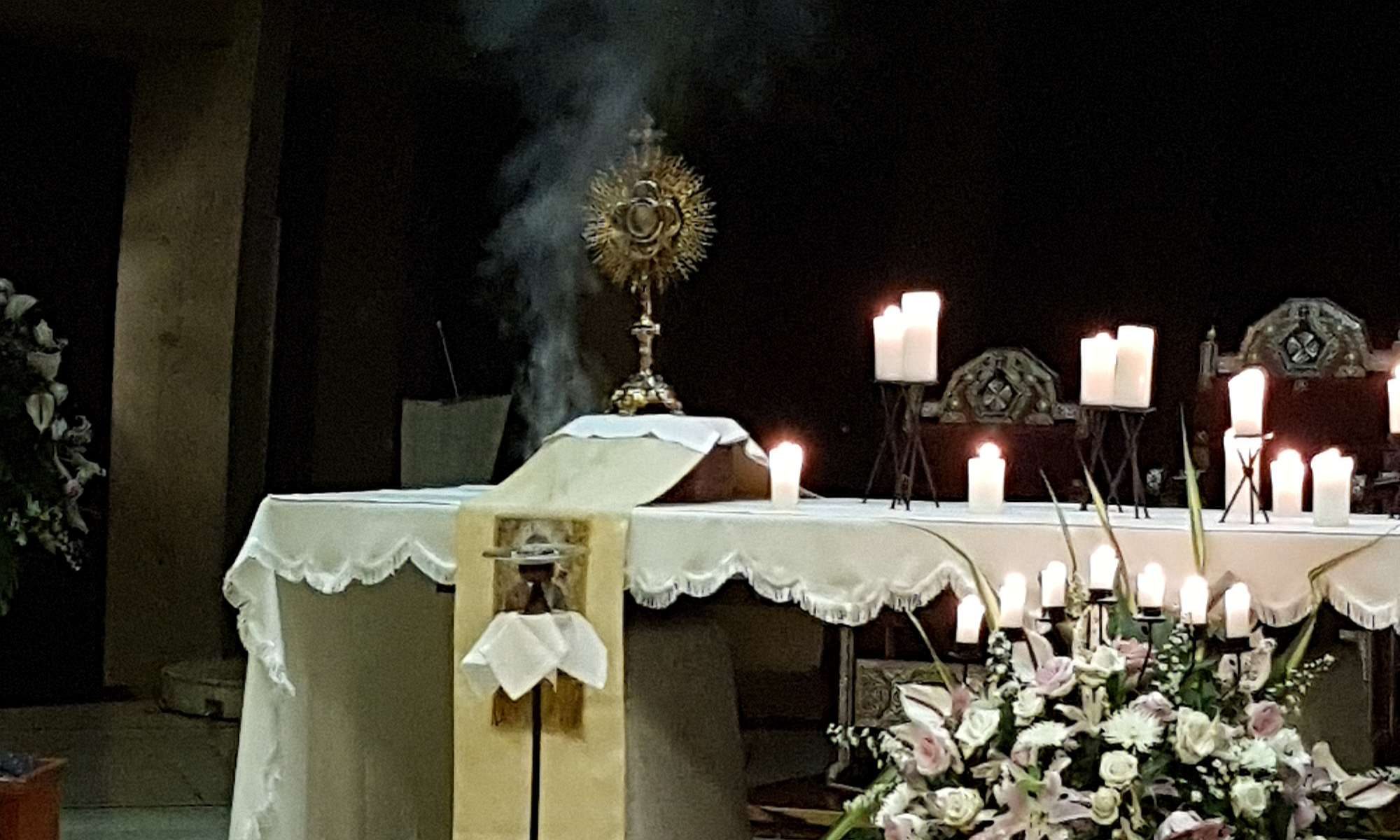Lenten Spiritual Retreat 2011, Talk 6 of 6: Witness to God’s love for humankind, in a rather profound way, pope John Paul II preached in word and deed why this love has a particular face in our time, namely, the face of compassion and mercy. Some specific references come to mind: (1) His encyclical letter Dives in Misericordia wants as to see God the Father through the lens of his own mercy. (2) His pontifical decision to institutionalise the Feast of Divine Mercy on the Second Sunday of Easter. (3) His own experience of a severely wounded Europe, and the lost of orientation in the larger Western society, leading to a global ministry of reconciliation within Christianity and beyond.
Lenten Retreat 2011, Talk 5 of 6
Lenten Spiritual Retreat 2011, Talk 5 of 6: Christianity can barely be understood unless one uncovers the drama that dwells down, in the innermost region of the human heart. From detecting incoherence between word and deed, to realising that rather profound cracks cross the soul over. In acknowledging our need we ready ourselves to acknowledge God’s powerful, bounteous mercy, whose name is Love.
Lenten Retreat 2011, Talk 4 of 6
Lenten Spiritual Retreat 2011, Talk 4 of 6: John Paul II, a man of true Christian hope. If communism (and any form of collectivism) is an extreme form of secular hope, we can say that Karol Wojtyla came to know very early in life how deceiving and devastating such a hope can be. Back in its origins in the Enlightenment, communism has its same blind confidence in the power of human reason to push humankind in the route of indefinite progress. The ideology of “The Market” and the tendency towards self-redemption, as inscribed in some “positive thinking” methods of mental training, share this same over-optimism in human capacity.
By contrast, Christian hope is firmly rooted in the conviction that God alone can transform the human condition for the better. In Christ, He has shown the abundance of his grace, and as followers of Christ we have the right and the duty of spreading the news of his unfailing love.
Lenten Retreat 2011, Talk 3 of 6
Lenten Spiritual Retreat 2011, Talk 3 of 6: Hope and the new logic Christ brought to the world. In the Sermon on the Mountain, Jesus invites us to seek God “in the secret.” Then, in the Our Father, he teaches us to invoke God as our “Father in heaven.” The relationship between each one’s “secret” (conscience) and heaven suggests that we are to be good for the sake of goodness and not in order to receive a visible reward. Hope, true hope, is based on this new “logic” in which the language of grace wins over the language of strict “trade.”
Lenten Retreat 2011, Talk 2 of 6
Lenten Spiritual Retreat 2011, Talk 2 of 6: Faith as visible in the life and works of Pope John Paul II. True witness to faith in his way of enduring all kind of suffering and overcoming so many obstacles, pope John Paul has also underlined particular aspects of Christian faith, chiefly, that faith is an encounter and not simply a beautiful set of interlocking ideas. His theology of the body and the way he insisted in the role of the Church in order to keep and transmit the true faith remain current and most remarkable.
Lenten Retreat 2011, Talk 1 of 6
Lenten Spiritual Retreat 2011, Talk 1 of 6: Faith is the one gift that opens up your life to all other gifts from God. Righteousness (biblical “justice”) consists in good standing before God. Sin is the breaking of that good relationship. Redemption is God’s generous offering to restore what was broken. Faith is the acceptance of such a wonderful gift.
